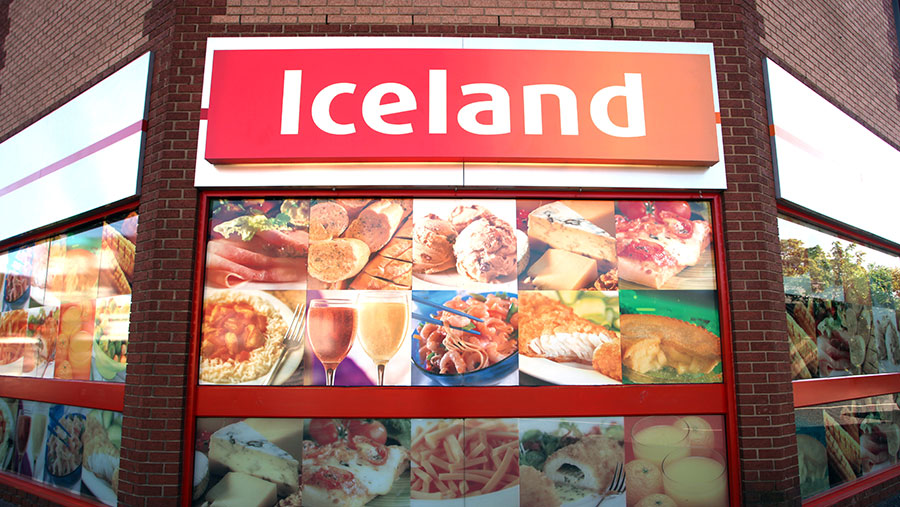Supermarket Iceland introduces uniform retail milk price
 © Rex Shutterstock
© Rex Shutterstock Retailer Iceland has introduced a uniform price for milk sold in its stores – so shoppers no longer receive a discount when making bulk purchases.
Iceland said it was increasing the price of four pints of milk in its stores but reducing the price of milk purchased in smaller quantities.
The move means shoppers will pay 25p for each pint of milk purchased from Iceland, whether they buy a single pint or six – with no discount when buying bigger cartons.
See also: Morrisons Milk For Farmers brand hits the shelves
Iceland said it was raising the retail price of four pints of milk from 89p to £1. But it is reducing the cost of a single pint from 50p to 25p.
Two pints are being reduced from 75p to 50p and six pints are being reduced from £1.85 to £1.50.
The news was welcomed by Farmers For Action (FFA), which has been campaigning for the value of milk to be reflected in its retail price, rather than seeing it used as a loss leader to woo customers.
Most of Iceland’s milk was sold in four-pint quantities, so the new pricing structure would benefit farmers, suggested the pressure group.
“Now someone has taken the initiative, we will be expecting to see all other retailers move very quickly”
Farmers For Action
“We in the industry have been saying this should have happened long ago, a fantastic food product priced to throw away,” it said.
“Now someone has taken the initiative, we will be expecting to see all other retailers move very quickly.”
FFA said it also expected to hear that all milk processors were “out there getting our share of the money. If not, more positive action may be needed to persuade them”.
The group said a number of its members wanted to know why their milk price was increasing in line with other retailer initiatives that were taking place.
This month, Morrisons introduced a Milk For Farmers brand to pass back more of the retail price to producers.
Processors that operated a basket price should move to direct pricing, suggested FFA.
Then everyone would could be sure that all monies being recovered from the marketplace were being passed back to producers.
